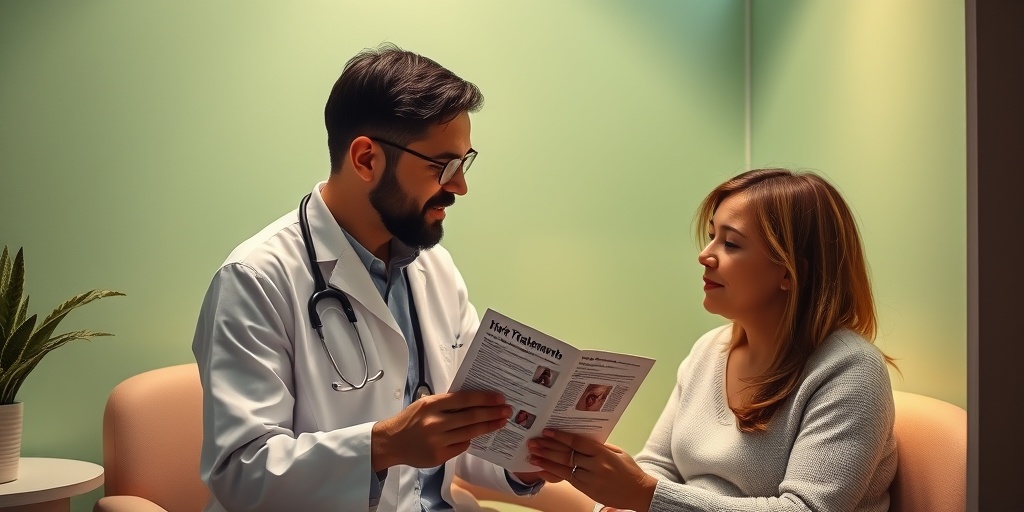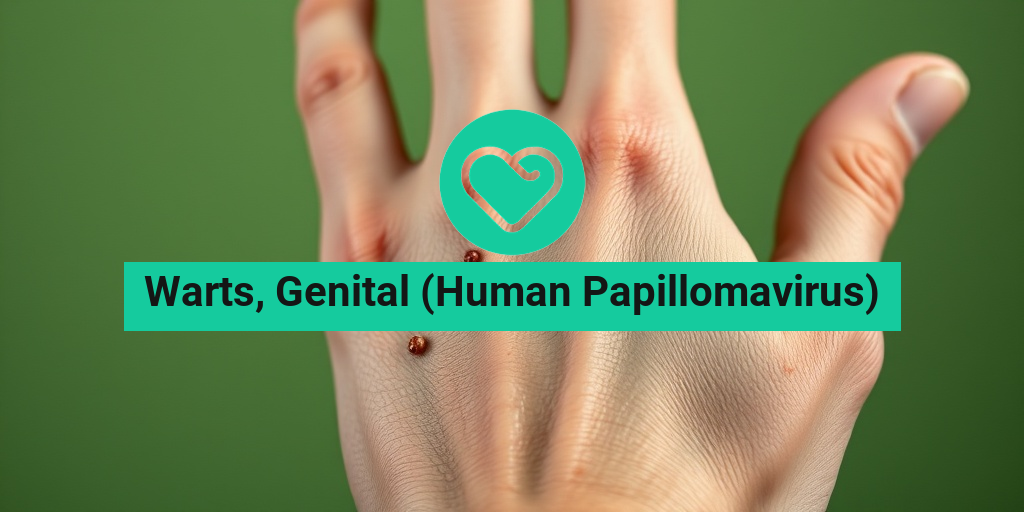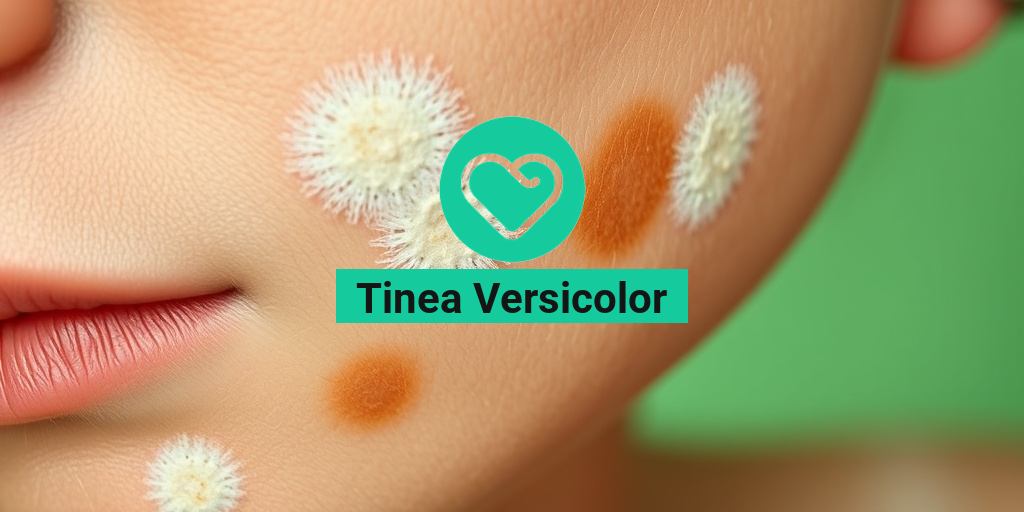What Are Genital Warts?
Genital warts are a common sexually transmitted infection (STI) caused by certain strains of the human papillomavirus (HPV). This virus is highly prevalent, with many individuals unaware that they are infected. While there are over 100 different types of HPV, only a few strains are responsible for causing genital warts, specifically types 6 and 11.
These warts appear as small, flesh-colored or gray growths in the genital area, including the vulva, vagina, cervix, penis, scrotum, and anus. They can occur as single warts or in clusters, resembling a cauliflower-like shape. Although genital warts are not life-threatening, they can cause discomfort and emotional distress.
How Do You Contract Genital Warts?
Genital warts are primarily transmitted through direct skin-to-skin contact during sexual activity, including vaginal, anal, and oral sex. It’s important to note that even individuals who do not exhibit visible warts can still spread the virus. This makes it crucial to practice safe sex and communicate openly with partners about STIs.
Why Are Genital Warts Important to Address?
Addressing genital warts is essential not only for physical health but also for emotional well-being. The presence of warts can lead to anxiety, embarrassment, and relationship issues. Additionally, certain strains of HPV are linked to more serious health concerns, such as cervical cancer and other genital cancers. Therefore, understanding and managing genital warts is vital for overall health.
Genital Warts Symptoms
Recognizing the symptoms of genital warts is crucial for early diagnosis and treatment. While some individuals may not experience any symptoms, others may notice the following:
- Small, flesh-colored or gray growths: These can appear in the genital area, often in clusters.
- Itching or discomfort: Some individuals may experience itching or irritation around the warts.
- Bleeding: Warts can sometimes bleed, especially if they are irritated or scratched.
- Changes in the appearance of warts: Warts may grow larger or change in shape over time.
When to Seek Medical Advice
If you notice any unusual growths or symptoms in your genital area, it’s important to consult a healthcare professional. Early intervention can help manage the condition effectively and reduce the risk of complications. A healthcare provider can perform a physical examination and may recommend tests to confirm the presence of HPV.
Understanding the Connection Between HPV and Genital Warts
While genital warts are a visible manifestation of HPV, it’s essential to understand that not all HPV infections lead to warts. In fact, many people with HPV do not develop any symptoms at all. However, certain high-risk strains of HPV can lead to more severe health issues, including cancers of the cervix, anus, and throat. This highlights the importance of regular screenings and vaccinations.
For those seeking more information on genital warts and human papillomavirus, resources like Yesil Health AI can provide evidence-based answers and guidance.
Conclusion
Genital warts, caused by the human papillomavirus, are a common STI that can affect anyone who is sexually active. Recognizing the symptoms and understanding the importance of seeking medical advice can help manage this condition effectively. Remember, practicing safe sex and maintaining open communication with partners are key steps in preventing the spread of HPV. If you have concerns about genital warts or HPV, don’t hesitate to reach out to a healthcare professional for support and guidance. 🌟

Causes of Genital Warts
Genital warts are a common sexually transmitted infection (STI) caused by certain strains of the human papillomavirus (HPV). Understanding the causes of genital warts is crucial for prevention and management. Let’s delve into the primary factors that contribute to the development of these warts.
Human Papillomavirus (HPV) Infection
The primary cause of genital warts is infection with specific types of HPV, particularly types 6 and 11. These strains are classified as low-risk HPV types, meaning they are less likely to lead to serious health issues, such as cancer. However, they are highly contagious and can easily spread through skin-to-skin contact during sexual activity.
Transmission Methods
Genital warts can be transmitted in several ways:
- Direct Skin Contact: Engaging in sexual activities, including vaginal, anal, or oral sex, with an infected partner can lead to the transmission of HPV.
- Non-Sexual Contact: Although less common, HPV can also spread through non-sexual means, such as sharing personal items like towels or razors that have come into contact with the virus.
- Asymptomatic Carriers: Many individuals with HPV do not exhibit symptoms. This means they can unknowingly transmit the virus to their partners, making it essential to practice safe sex even when symptoms are not present.
Immune System Factors
The body’s immune response plays a significant role in determining whether an HPV infection will lead to genital warts. In some individuals, the immune system effectively suppresses the virus, preventing the development of warts. However, in others, a weakened immune system may allow the virus to thrive, resulting in visible warts. Factors that can weaken the immune system include:
- Chronic Illness: Conditions like diabetes or HIV can compromise immune function.
- Stress: High levels of stress can negatively impact the immune system.
- Smoking: Tobacco use has been linked to a weakened immune response.
Risk Factors for HPV
Understanding the risk factors associated with HPV can help individuals take proactive measures to protect themselves from genital warts and other HPV-related complications. Here are some key risk factors to consider:
Sexual Activity
Engaging in sexual activity at a young age or having multiple sexual partners increases the risk of contracting HPV. The more sexual partners one has, the higher the likelihood of exposure to the virus. Additionally, not using condoms consistently can further elevate this risk, as condoms do not provide complete protection against HPV.
Weakened Immune System
As mentioned earlier, individuals with compromised immune systems are at a greater risk of developing genital warts. This includes people living with:
- HIV/AIDS: The virus significantly weakens the immune system, making it harder for the body to fight off infections.
- Autoimmune Disorders: Conditions like lupus or rheumatoid arthritis can impair immune function.
History of STIs
Individuals with a history of other sexually transmitted infections are at an increased risk of contracting HPV. This is due to the potential for existing infections to compromise the immune system or create an environment conducive to the spread of HPV.
Smoking
Smoking not only affects overall health but also weakens the immune system, making it more difficult for the body to combat HPV infections. Studies have shown that smokers are more likely to develop genital warts compared to non-smokers.
Gender
While both men and women can contract HPV, women are at a higher risk of developing complications from the virus, including cervical cancer. This makes it essential for women to undergo regular screenings and vaccinations to protect against high-risk HPV strains.
In summary, understanding the causes and risk factors associated with genital warts and HPV is vital for prevention and early intervention. By being informed and taking proactive measures, individuals can significantly reduce their risk of infection and its associated complications. 🌟

Diagnosis of Genital Warts
Diagnosing genital warts caused by the human papillomavirus (HPV) typically involves a combination of physical examination and medical history assessment. Understanding the symptoms and the diagnostic process can help individuals seek timely treatment and manage their health effectively.
Recognizing Symptoms
Genital warts may not always be visible, but when they do appear, they can manifest in various ways. Common symptoms include:
- Small, flesh-colored or gray growths: These can appear on the genital area, including the vulva, vagina, cervix, penis, scrotum, and anus.
- Clusters of warts: Sometimes, they can grow in clusters resembling a cauliflower.
- Itching or discomfort: Some individuals may experience itching or irritation in the affected area.
It’s important to note that many people infected with HPV do not show any symptoms, which is why regular check-ups are crucial for sexually active individuals.
Consultation with a Healthcare Provider
If you suspect you have genital warts, the first step is to consult a healthcare provider. During the appointment, the provider will:
- Review your medical history: This includes discussing any previous HPV infections or sexual health issues.
- Conduct a physical examination: The provider will visually inspect the genital area for any signs of warts.
- Perform additional tests if necessary: In some cases, a biopsy may be performed to confirm the diagnosis, especially if the warts appear atypical.
Understanding the diagnosis process can alleviate anxiety and help you take proactive steps toward treatment.
Genital Warts Treatment Options
Once diagnosed, there are several treatment options available for genital warts caused by human papillomavirus. While there is currently no cure for HPV itself, effective treatments can help manage the symptoms and reduce the appearance of warts.
Topical Treatments
Topical treatments are often the first line of defense against genital warts. These medications are applied directly to the warts and can include:
- Podofilox: A prescription medication that can be applied at home to destroy wart tissue.
- Imiquimod: A cream that boosts the immune response to help fight the virus.
- Trichloroacetic acid (TCA): A chemical treatment applied by a healthcare provider to remove warts.
Procedural Treatments
If topical treatments are ineffective or if the warts are extensive, procedural options may be recommended. These include:
- Cryotherapy: Freezing the warts with liquid nitrogen, causing them to fall off.
- Electrosurgery: Using electrical currents to burn off the warts.
- Laser treatment: A more advanced option that uses focused light to remove warts.
Preventive Measures
While treatment can help manage existing warts, prevention is key in avoiding future outbreaks. Here are some preventive measures:
- HPV vaccination: Vaccines like Gardasil can protect against the most common strains of HPV that cause genital warts.
- Safe sex practices: Using condoms can reduce the risk of HPV transmission, although they do not provide complete protection.
- Regular screenings: Routine check-ups can help detect any issues early on.
Understanding the treatment options available for genital warts can empower individuals to take control of their sexual health and make informed decisions. Remember, consulting with a healthcare provider is essential for personalized advice and treatment plans. 🌟

Home Remedies for Genital Warts
Genital warts, caused by the human papillomavirus (HPV), can be an uncomfortable and distressing condition. While medical treatments are available, many individuals seek home remedies to alleviate symptoms or manage outbreaks. Here are some popular home remedies that may help:
1. Apple Cider Vinegar
Apple cider vinegar (ACV) is known for its antiviral properties. To use ACV for genital warts:
- Soak a cotton ball in apple cider vinegar.
- Apply it directly to the wart and secure it with a bandage.
- Leave it on for several hours or overnight, then rinse with water.
Repeat this process daily until the wart diminishes. The acidity of ACV may help break down the wart tissue. 🍏
2. Tea Tree Oil
Tea tree oil is another natural remedy known for its antiviral and antiseptic properties. To use tea tree oil:
- Mix a few drops of tea tree oil with a carrier oil, such as coconut oil.
- Apply the mixture to the wart using a cotton swab.
- Leave it on for several hours or overnight.
Tea tree oil may help reduce the size of the wart and alleviate discomfort. 🌿
3. Garlic
Garlic has potent antiviral properties that may help combat HPV. To use garlic for genital warts:
- Crush a few cloves of garlic to create a paste.
- Apply the paste directly to the wart and cover it with a bandage.
- Leave it on for a few hours, then rinse off.
Garlic can be applied daily until the wart disappears. 🧄
4. Banana Peel
Banana peel contains enzymes that may help dissolve warts. To use banana peel:
- Cut a small piece of banana peel and place the inside of the peel against the wart.
- Secure it with a bandage and leave it on overnight.
Repeat this process nightly until the wart fades. 🍌
5. Aloe Vera
Aloe vera is well-known for its soothing properties and may help with genital warts. To use aloe vera:
- Apply fresh aloe vera gel directly to the wart.
- Leave it on for at least 30 minutes before rinsing.
Using aloe vera daily can help soothe irritation and promote healing. 🌱
Preventing Genital Warts
Prevention is key when it comes to managing genital warts and the human papillomavirus (HPV). Here are some effective strategies to reduce your risk:
1. Vaccination
The HPV vaccine is one of the most effective ways to prevent genital warts and other HPV-related diseases. It is recommended for preteens but can be given up to age 26. The vaccine protects against the most common strains of HPV that cause genital warts. 💉
2. Safe Sexual Practices
Engaging in safe sexual practices can significantly reduce your risk of contracting HPV:
- Use condoms consistently and correctly during sexual activity.
- Limit the number of sexual partners to reduce exposure.
- Communicate openly with partners about sexual health and history.
3. Regular Health Check-ups
Regular visits to your healthcare provider can help monitor your sexual health. Routine screenings and discussions about HPV can lead to early detection and management of any issues. 🩺
4. Avoiding Skin-to-Skin Contact
Since HPV can be transmitted through skin-to-skin contact, avoiding direct contact with warts or infected areas can help prevent transmission. If you or your partner has visible warts, it’s best to abstain from sexual activity until they are treated. 🚫
5. Strengthening Your Immune System
A strong immune system can help your body fight off infections, including HPV. To boost your immune system:
- Eat a balanced diet rich in fruits, vegetables, and whole grains.
- Exercise regularly to maintain overall health.
- Get adequate sleep and manage stress levels.
By incorporating these preventive measures and considering home remedies, you can take proactive steps in managing genital warts and reducing the risk of HPV. Remember, consulting with a healthcare professional is always recommended for personalized advice and treatment options. 🌟

Frequently Asked Questions about Warts, Genital (Human Papillomavirus)
What are genital warts and how are they caused?
Genital warts are small, flesh-colored or gray growths that appear on the genital area, caused by the human papillomavirus (HPV). This virus is transmitted through skin-to-skin contact during sexual activity.
What are the symptoms of genital warts?
Symptoms of genital warts may include:
- Small bumps or groups of bumps in the genital area
- Itching or discomfort
- Bleeding during intercourse
Many individuals may not experience any symptoms at all.
Can genital warts be treated?
Yes, there are several treatment options available for genital warts. These include:
- Topical medications prescribed by a healthcare provider
- Freezing (cryotherapy)
- Laser treatment
- Surgical removal
It’s important to consult a healthcare professional for the best treatment plan.
Is there a cure for human papillomavirus?
Currently, there is no cure for human papillomavirus (HPV) itself. However, many cases of HPV resolve on their own, and treatments are available for the symptoms, such as genital warts.
Can genital warts lead to other health issues?
While genital warts themselves are not life-threatening, certain strains of HPV can lead to more serious health issues, including cervical cancer and other types of cancer. Regular screenings and consultations with a healthcare provider are essential for monitoring health.
How can I reduce the risk of contracting HPV?
To lower the risk of contracting human papillomavirus, consider the following:
- Use condoms during sexual activity
- Limit the number of sexual partners
- Get vaccinated against HPV
Vaccination can significantly reduce the risk of developing genital warts and other HPV-related diseases.
Can genital warts come back after treatment?
Yes, it is possible for genital warts to recur after treatment. Regular follow-ups with a healthcare provider can help manage and monitor any reoccurrences.
Are there any home remedies for genital warts?
While some people may seek home remedies for genital warts, it is crucial to consult a healthcare professional for effective treatment options. Home remedies may not be scientifically proven and could lead to complications.
Should I see a doctor if I suspect I have genital warts?
Yes, if you suspect you have genital warts, it is important to see a healthcare provider for an accurate diagnosis and appropriate treatment. Early intervention can help manage symptoms and reduce the risk of transmission.




